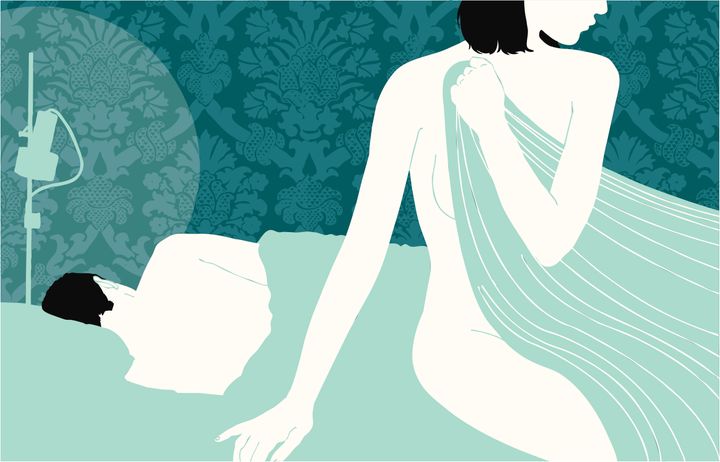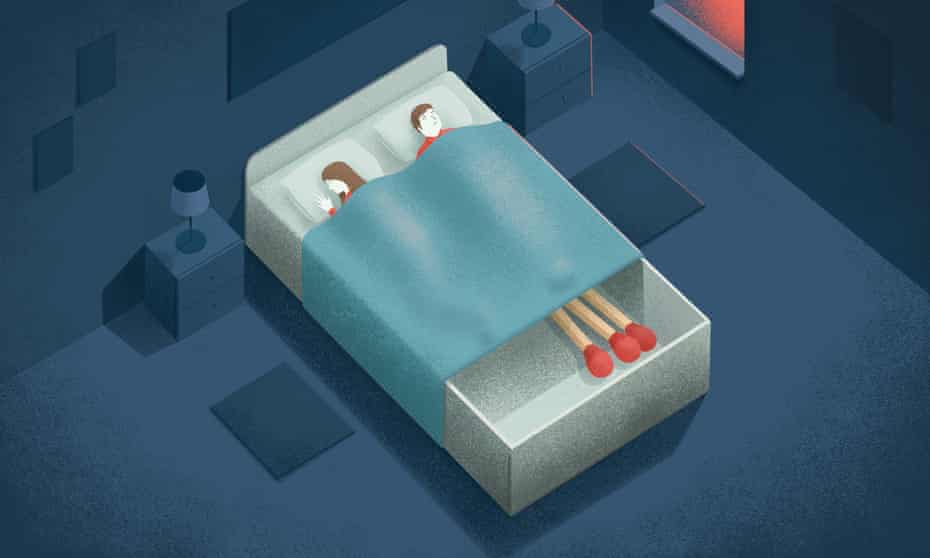In 2016, the number of people estimated to be suffering from mental health issues like depression and anxiety amounted to roughly 1.1 billion. Since then, numbers have likely continued to rise. Moreover, studies have also shown women especially on average are a) more likely to suffer from mental health issues, and b) less likely to talk about them. The taboo in Pakistan surrounding depression and anxiety disorders only serve to aggravate the individuals suffering even more. For the women who cannot seek out full time therapy, we’ve enlisted the help of a trained therapist. You sent us in your questions – here are the answers!

“If a woman refuses to have sex with her husband, does it mean she doesn’t like him or that she has feelings for someone else? Is it a psychological issue? I am very confused about my situation. Is it normal to have no desire at all at a given time, even if your relationship is otherwise going well? Please guide me on this.”

Dear Anon,
You raise a very interesting issue, Anon. When it comes to sexual dynamics in a relationship, couples will face different challenges. There are several expectations that one might have around sex: the frequency, level of libido and just the concept of attraction in itself. Truthfully, there isn’t a “one size fits all” answer to this, because at the end, it truly depends on the couple’s history and what they have been putting into the relationship. Sex can have a different meaning for each person, and at the end, it does get translated into the relationship. Let’s explore this matter further and see if we can help you understand what might be going on.
First And Foremost: Step Away From The Shame
There are certain expectations that surround the world of sex – and at the end of the day, the bottom line is: you assess your own desires and level of comfort and see what works best for you. If there are days, or weeks, or months where you’re not feeling that desire, that is completely okay. At the end, you can’t force yourself into a feeling, especially if you’re uncomfortable with the idea of it. Give yourself a break.
Now that we have shame parked away somewhere, let’s go into this with a little more curiosity and less judgement. As discussed before: each person will vary in terms of their sex drive/libido, and it is worth exploring one’s relationship with their drive. Some exploratory questions one could ask themselves are:
- What is my relationship with sex and/or intimacy?
- Do I find myself attracted to other people (who are not my partner)?
- Are there are lifestyle changes that have taken place that might be impacting my drive? (Move to a new city, shift in home, high stress levels at work, pre-existing mental health issues such as anxiety and/or depression etc.)
- Have I experienced periods of time where I don’t feel attracted to anyone?
- What are the cultural/religious messages around sex?

The Role Of Sex In A Marriage
Coming to the issue that specifically concerns one’s partner. Anon, sometimes everything in the relationship might seem okay, good even, but you’re just not feeling that attraction to your partner. Now, I’m not sure about how long you’ve been married, or if there was an attraction that existed in the past but faded over time. In any case, sometimes it also happens that while you might work well together in terms of functionality, you’re just not feeling that pull towards your partner. This can happen for a variety of reasons:
- Lack of emotional connection.
- Resentment in the relationship.
- Continuous, ongoing conflict in the relationship.
- Trauma.
- Mental health is taking a hit.
- He might not have qualities that you would normally find attractive.
- Your husband’s appearance has changed.
I completely hear you on the matter that you’re not feeling that attraction, Anon. It’s worth noting as to how this might be impacting your marriage. It’s hard to ignore that in a partnership or a marriage, there is an expectation of physical and emotional intimacy between the two parties involved. It’s not uncommon for one’s libido to be higher than their partner’s, and at times, when this discrepancy is present, an open and honest conversation is beneficial. You might opt to set up some expectations, boundaries, and perhaps reach an understanding or half-way point that both parties are comfortable with.
What I would also recommend is that if you feel that this is really taking a toll on your marriage, it would be worth going to a couples/marriage counsellor, ideally one who works psycho-sexually, and would be able to help you both navigate your feelings in a safe environment. Alternatively, you may also want to explore your feelings with a counsellor individually, so you could opt for this option in addition to or instead of couple’s counselling.
Other things that you could try, if you’re looking to feel closer and more connected to your partner are:
- Trying different ways of building that connection: hugging, kissing, lying next to each other – I would even recommend doing this either naked or in your underwear. The idea is to increase skin-to-skin contact.
- Doing different activities together: going for dates, working out together, trying out a new hobby together – building on the time that you spend with one another.
- Connect emotionally: prolonged eye contact, having heart-to-hearts and really connecting with each other would also help you build on that closeness.
Anon, I am mindful that there is a lot that I don’t know here, and I have written this article with the information available to me. Sexuality is a spectrum, and how we all experience it also varies. There is no right or wrong here. In a marriage, all you would need to do is communicate with your partner about your feelings as openly as you can and take it one step at a time. I really hope that this article was helpful to you, and I wish you all the best on your journey towards healing. Take care and stay in your power!

The above article is written by Shahrukh Shahbaz Malik who is trained in humanistic integrative counselling at CPDD in the UK and currently has her own private practice in Karachi. The views expressed in this article are those of one expert. They do not necessarily represent the views of Mashion, nor do they represent the complete picture of the topic at hand. This article is for informational purposes only and is not a substitute for medical diagnosis, treatment or therapy.








What do you think?
You must be logged in to post a comment.